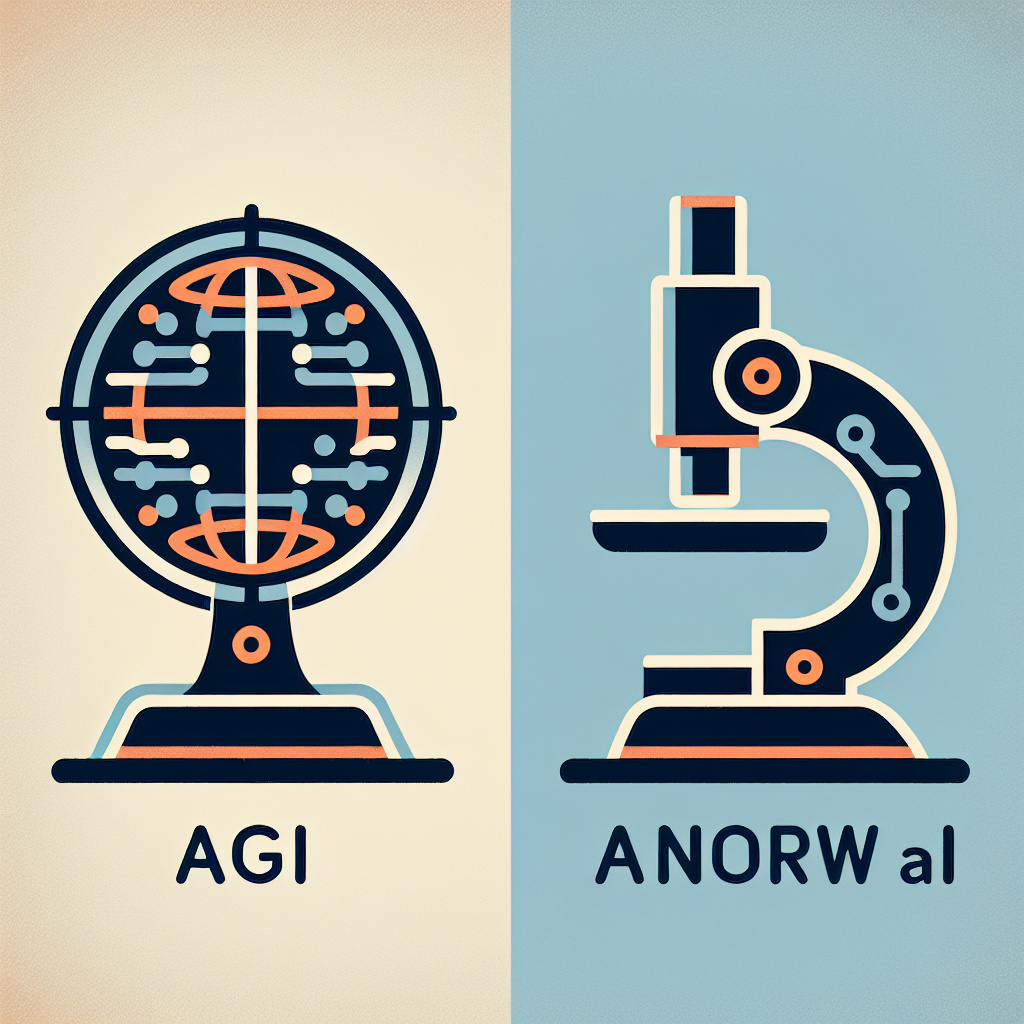Artificial Intelligence (AI) has become a buzzword in the technology industry in recent years, but not all AI is created equal. There are two main types of AI: Narrow AI and Artificial General Intelligence (AGI). While both have the ability to perform tasks that would normally require human intelligence, they differ in their capabilities and potential impact on society.
In this article, we will explore the differences between AGI and Narrow AI, their respective strengths and limitations, and the implications of each for the future of technology and society.
Narrow AI
Narrow AI, also known as Weak AI, is the most common form of AI that we encounter in our daily lives. It is designed to perform a specific task or set of tasks within a limited domain. Examples of Narrow AI include voice assistants like Siri and Alexa, recommendation algorithms used by streaming services like Netflix, and self-driving cars.
Narrow AI is highly specialized and can only perform the tasks it has been programmed to do. It lacks the ability to generalize its knowledge or apply it to new situations outside of its designated domain. For example, a voice assistant like Siri may be able to answer questions about the weather or set reminders, but it cannot engage in a meaningful conversation or understand the nuances of human language.
Despite its limitations, Narrow AI is incredibly powerful and has already revolutionized many industries. It has improved efficiency, accuracy, and productivity in areas such as healthcare, finance, and transportation. However, its narrow focus means that it is not capable of achieving true human-level intelligence.
Artificial General Intelligence (AGI)
Artificial General Intelligence (AGI), also known as Strong AI, is the holy grail of AI research. It refers to a system that possesses the same level of intelligence and cognitive abilities as a human being. AGI would be able to understand and learn from its environment, reason, plan, solve problems, and communicate effectively with humans.
AGI has the potential to revolutionize society in ways that we can scarcely imagine. It could lead to breakthroughs in science, medicine, and technology, and help solve some of the most pressing challenges facing humanity. However, achieving AGI is an incredibly difficult and complex task that has eluded researchers for decades.
One of the main challenges of AGI is building a system that can generalize its knowledge and adapt to new situations. Humans are able to transfer their knowledge and skills from one domain to another, a capability known as transfer learning. AGI would need to possess this ability in order to truly mimic human intelligence.
Another challenge is ensuring that AGI is aligned with human values and goals. A superintelligent AI could potentially have its own agenda that is not aligned with ours, leading to potentially catastrophic consequences. Ensuring the safety and ethical use of AGI is a critical consideration for researchers in the field.
FAQs
Q: Will AGI surpass human intelligence?
A: It is difficult to predict whether AGI will surpass human intelligence. Some experts believe that AGI could far surpass human intelligence, while others are more skeptical. Regardless, it is important to consider the potential risks and implications of AGI as it continues to advance.
Q: What are the ethical implications of AGI?
A: The development of AGI raises a number of ethical concerns, including the potential for job displacement, loss of privacy, and misuse of AI for malicious purposes. It is important for researchers and policymakers to address these concerns as AGI continues to evolve.
Q: When will AGI be achieved?
A: It is impossible to predict when AGI will be achieved, as it is a highly complex and challenging task. Some researchers believe that AGI could be achieved within the next few decades, while others believe that it is still many years away. Research in the field of AI continues to advance rapidly, so it is important to stay informed about the latest developments.
In conclusion, the differences between AGI and Narrow AI are significant and have important implications for the future of technology and society. While Narrow AI is already prevalent in our daily lives and has improved efficiency and productivity in many industries, AGI represents the next frontier of AI research and has the potential to revolutionize society in ways that we can scarcely imagine. As researchers continue to make progress in the field of AI, it is important to consider the ethical implications and potential risks of AGI as it continues to evolve.

